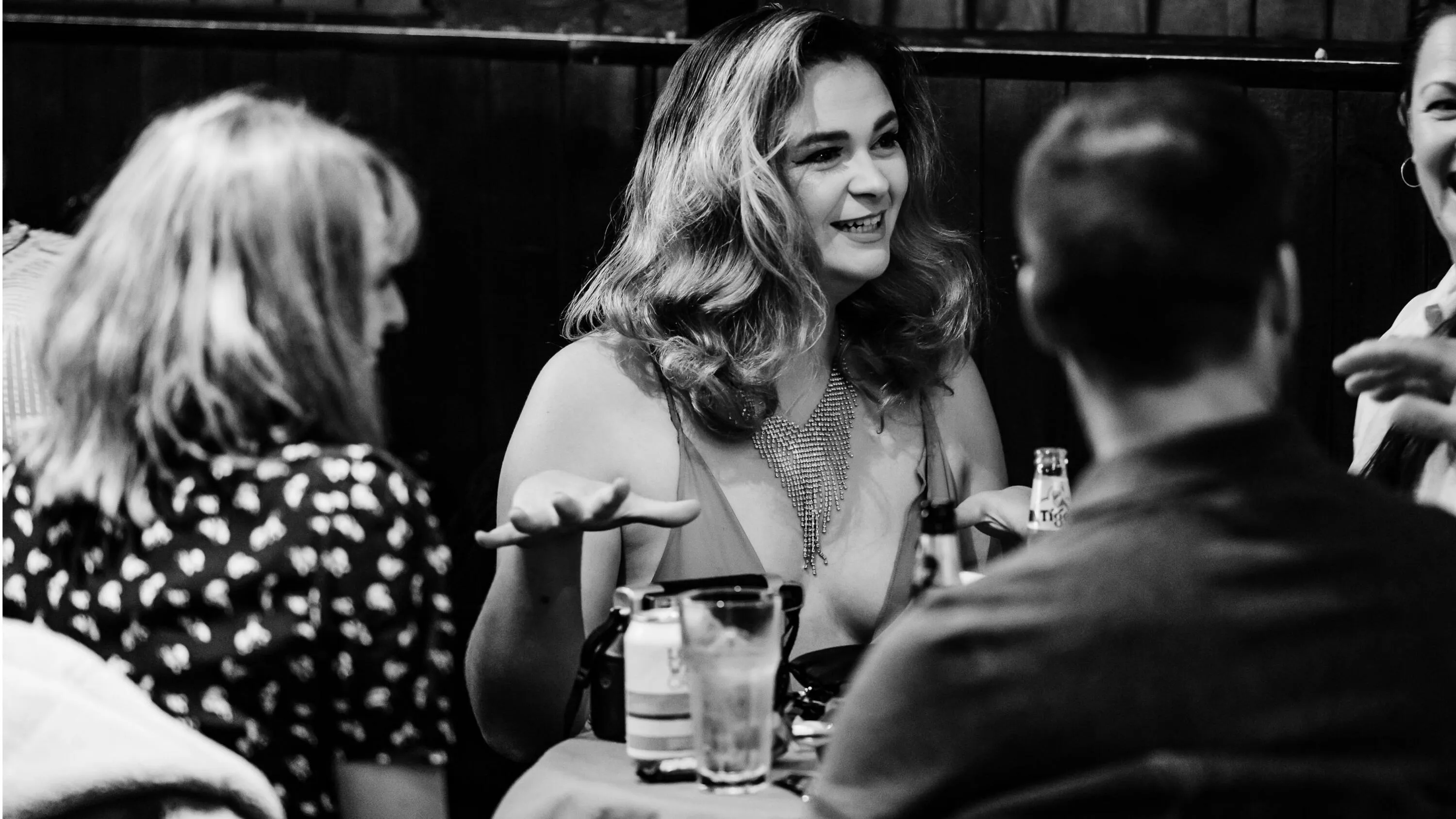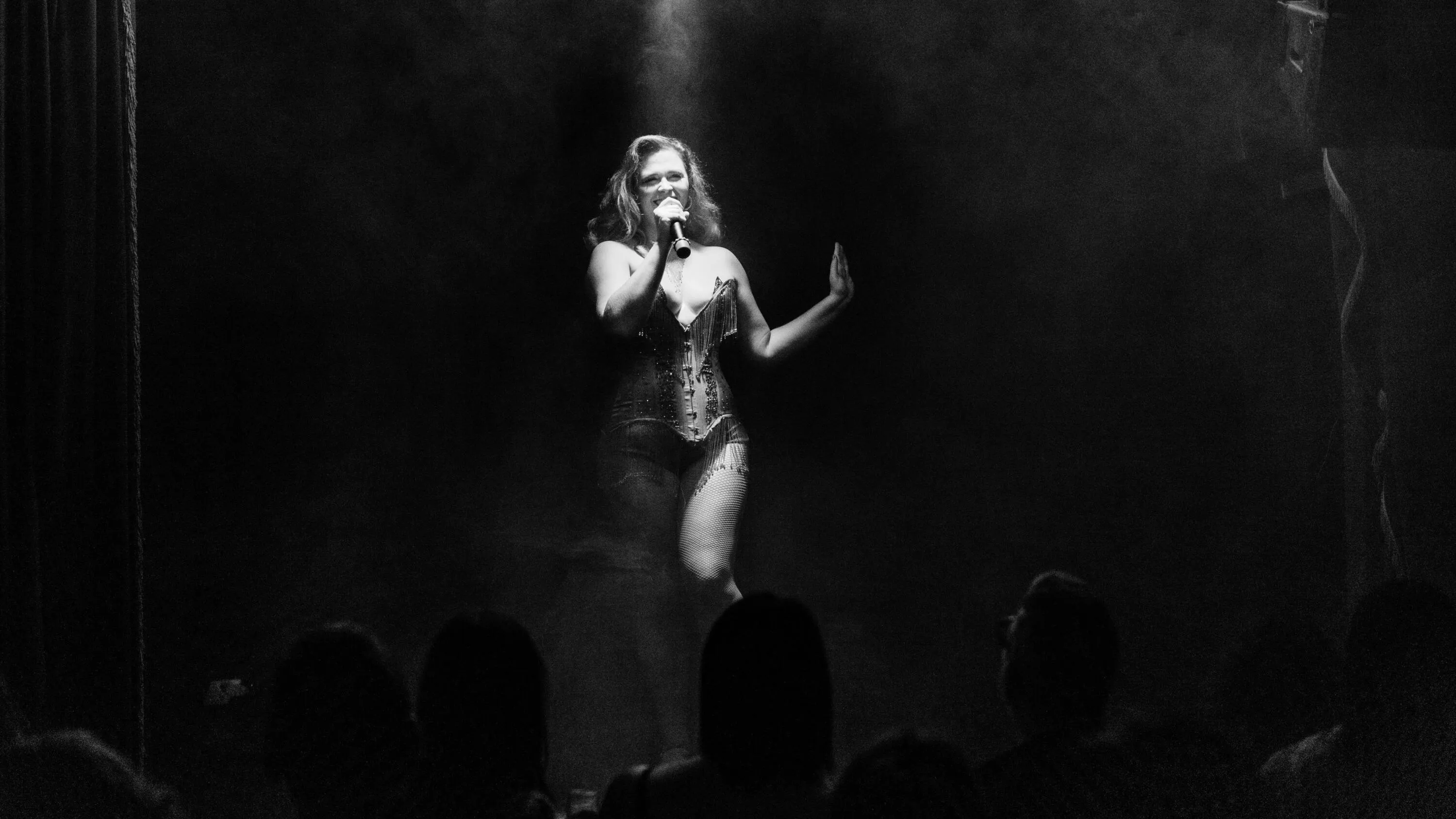How To Stop Boss Mode Quashing Your Creative Rush

In my head, I’d always imagined being a boss was glamorous.
There was a lot of sharp tailoring, shouting “Yes! No! Buy! Sell!” into phones, and owning an engraved gold cigarette lighter that I could tap impatiently on hard surfaces.
What I never imagined was spending all day in Kmart track pants, digging hardened chewing gum out of my stage with a ballpoint pen.
And yet I soon realised that’s basically 80% of being a boss; doing sweaty, sweary, silly stuff that no one wants to do but needs to be done.
And you do it because, well, it’s your company.
You’re the only one who knows or cares if there’s a glob of spearmint fresh under the stage-right clam shell. Or if you haven’t got that invoice paid yet. Or….
This anticlimactic lull of promotion is almost an inevitable part of the creative career.
It’s widely accepted that this is what happens when you go from artist to boss. It’s not fun any more.
I went from MC and cabaret performer, to running a burlesque club in a year. One minute I was bouncing around gigs like a slightly tipsy pinball. The next I was the first in, last out, and missing the after party because I needed to pick up disused elastoplasts that punters had so graciously stuffed into our booth seating.
But this happens to a lot of us. At some point as an artist, you decide you want to “take this seriously” and go from hobbyist to your own boss. Whether that means you now run a big team, or just the solo business of you, it’s a lot less fun being in charge.
Or, as a mate put it after graduating from dancer to creative director, “I used to be a flaming sambuca shot. Now I’m your Dad’s $5 flat white.”
And for a while I agreed with him, and assumed this was just part of “growing up”. (Or any of the other idiotic idioms we whisper to ourselves at 2am, when reviewing our life choices in the petty, nasty voice of our year 10 gym teacher.)
But it’s not.
The more I’ve been thinking about this recently, the more I realise the mistake we’re making. We expect running things to thrill us in the same way that making things does.
One of the intoxicating parts of being an artist is the giddy high of adrenaline and adulation you get from a crowd. Whether you’re watching punters gasp over your paintings, or listening to people laugh at your one liners, the public validation is incredible. It gives you that high of a public risk and public reward. And the identity affirmation of, “people know that this is me, and I’m someone who does cool shit!”

Verity Johnson doing her cool shit, Photo: Andi Crown/Club Burlesque.
You don’t get any of that as a boss.
Most of the work you’ll end up doing is behind the scenes. Your stage certainly doesn’t turn around and thank you for exfoliating it. Now your business is the invisible, seamless running of the whole thing. And no one comes up to you afterwards to tell you that your efficient collection of IR330C forms moved their poetic soul.
Not only is there far less public validation, but you’re also probably realising that the skills you have won’t help you now. You may create beautiful art, but that doesn’t necessarily translate to beautiful spreadsheets.
So now, not only do you now do all the thankless, dull bits. But also feel you’re not very good at them.
So we brood on the lost innocence of performing, and resent the inevitable management funk of staff drama, late payees and not having anyone more senior you can palm off problems to.
But here’s the thing - management will never thrill us the way creating does. They’re completely different disciplines. But it comes with its own rewards that are far subtler and stronger.
If performing is a giddy sugar rush, boss-ing is a deep, slow glow.
There’s the deep, unshakable pride of looking at a poster or a newly paid invoice and thinking, I did that.
Or the head-clearing sense of purpose you get knowing that people rely on you.
Or the electrifying sense of determination that comes from needing to get everyone paid.
Or the soul-expanding moment of realising that you’re shaping and directing talents and legacies that are far bigger than you.
Now, admittedly none of those rewards are overtly glamorous. And they’re all rather hard to see, hiding away in the back cupboard of your mind like a long-forgotten bottle of champagne blocked from sight by cans of 99c tomatoes.
But they are there.
And really, is there any point in pining for the lost carefree days?
If you become a boss, not only are you talented but you’re likely ambitious too. You were never going to stay where you were, were you?
You can mourn the inevitable loss of innocence. Or you can enjoy the brave, exciting, exhausting, rather sticky new world of your own making.
